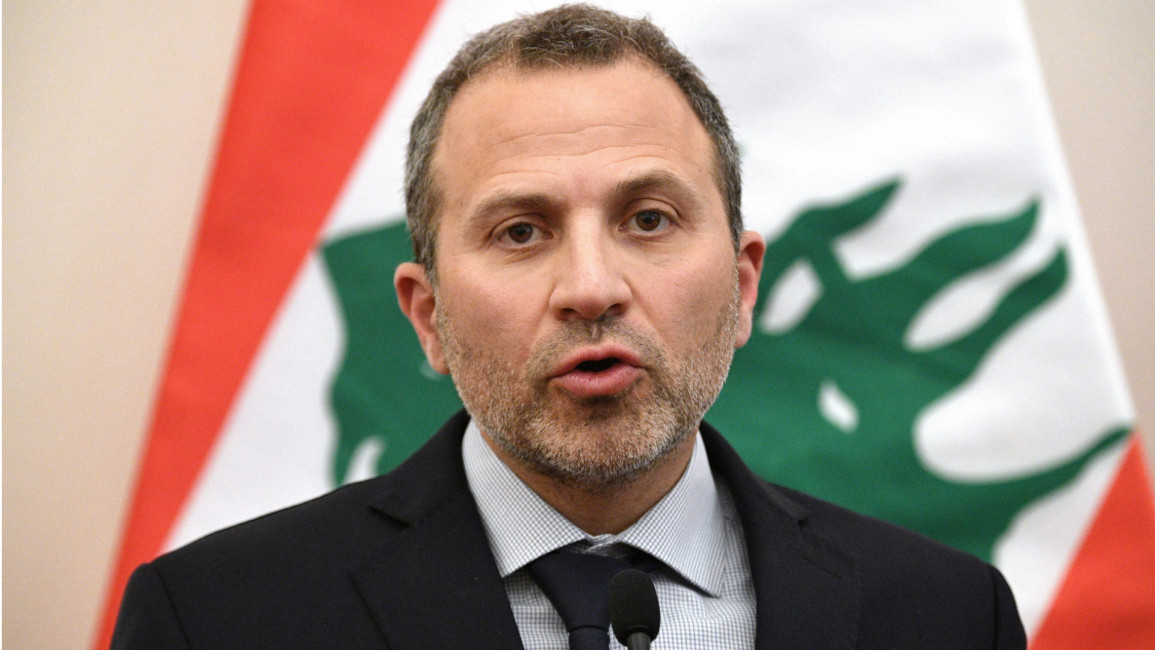Lebanon FM slams anti-government protests at Budapest conference on Christian persecution
donation to restore churches.
Gebran Bassil, the son-in-law of President Michel Aoun and leader of the Free Patriotic Movement party, attended on Tuesday the Second International Conference on Christian Persecution in Budapest.
Addressing the conference attendees, Bassil slammed the current anti-government protests, implying that they are pushed by external powers.
"Imagine, that some are, again, promising the Lebanese with a new spring, while they are preparing for them another severe winter, [like that of the] Syrian uprising that started [in] colour and that might end up being dark," Bassil said.
"It will continue to be blown with hatred, incitement, cursing, and with cutting roads and closing constitutional private and public institutions," he added.
Bassil warned that instability in Lebanon could lead to "extreme" migration waves reaching Europe.
Twitter Post
|
The politician also warned of the impact that the continued presence of Syrian refugees in Lebanon has on the country's Christian minority, adding that the number of Christians living in Lebanon has fallen by two thirds.
"If Christians disappear from the land of Christ's birth, there will be no longer be any point in protecting them," he said.
Bassil's concerns were backed by his Hungarian counterpart Peter Szijjarto, who is known for his anti-refugee stance.
"We must avoid inspiring any process that would trigger another migration wave towards Lebanon and avoid any decision that would incentivise the two million refugees there to stay in the country for the long term or permanently," Szijjarto said.
He announced that his country will donate $2 million for the reconstruction of 30 churches in Lebanon.
Demonstrations demanding an overhaul of Lebanon's entire political system have rocked the small Mediterranean country since October 17.
The World Bank says about a third of Lebanese live in poverty, and that this could soon rise to half.
The top one percent of the population control nearly 25 percent of national income, while the bottom half have little more than 10 percent.
Economic growth in Lebanon had plummeted in the wake of repeated political deadlocks in recent years, compounded by the war in neighbouring Syria.
Follow us on Twitter and Instagram to stay connected


![Minnesota Tim Walz is working to court Muslim voters. [Getty]](/sites/default/files/styles/image_684x385/public/2169747529.jpeg?h=a5f2f23a&itok=b63Wif2V)




![Debris near Rafic Hariri International Airport [Getty]](/sites/default/files/styles/image_330x185/public/2176162423.jpeg?h=a5f2f23a&itok=MCSK9mkM)
![An Israeli air strike on Jabalia killed teenage journalist Hassan Hamad [Screengrab/X]](/sites/default/files/styles/image_212x120/public/2024-10/hassan%20hamad1.jpg?h=c12e0b96&itok=KstD_5xk)
